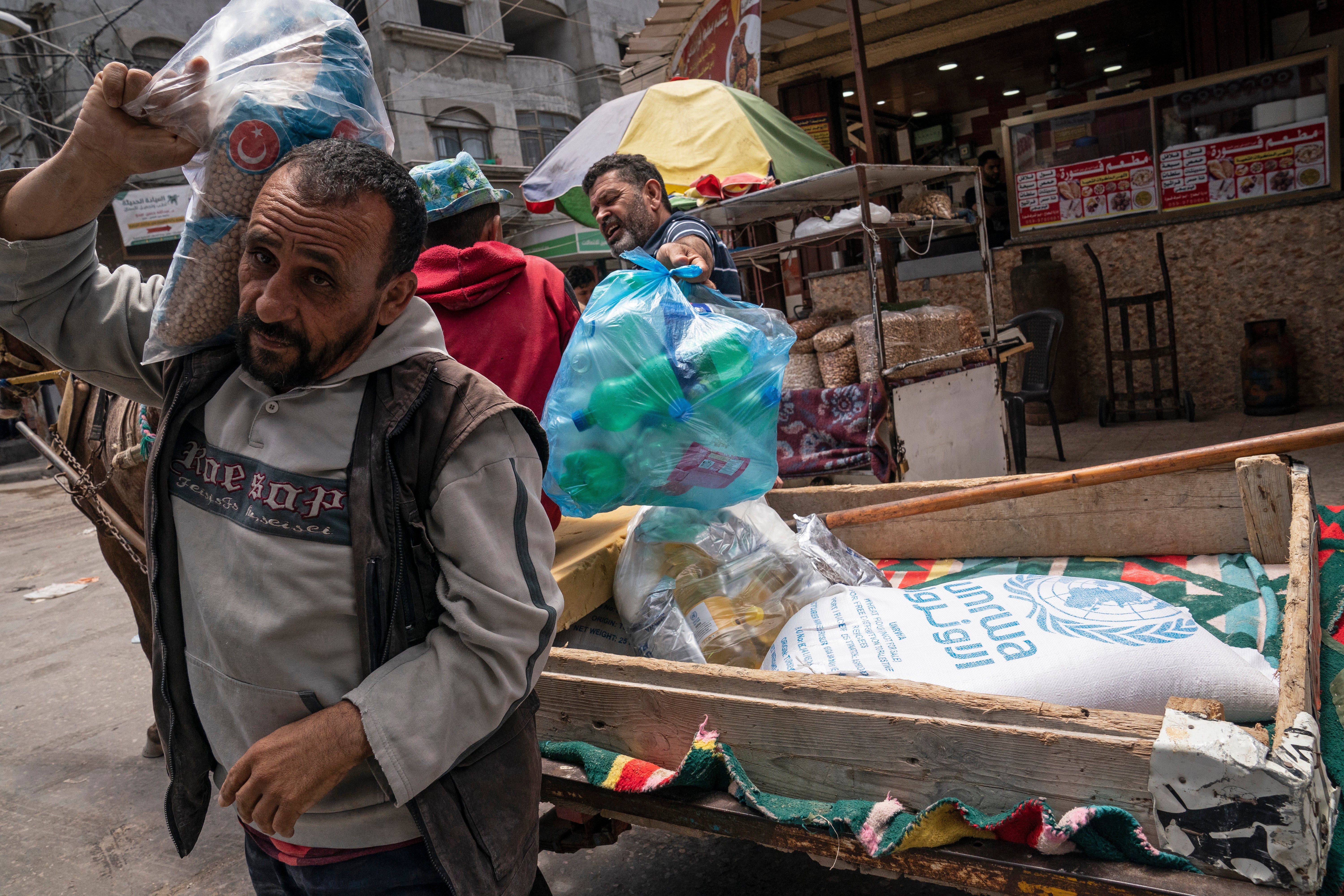UN agency for Palestinian refugees faces funding crisis
The head of the U.N. agency for Palestinian refugees says it was unable to pay its 28,000 employees on time this month

Your support helps us to tell the story
From reproductive rights to climate change to Big Tech, The Independent is on the ground when the story is developing. Whether it's investigating the financials of Elon Musk's pro-Trump PAC or producing our latest documentary, 'The A Word', which shines a light on the American women fighting for reproductive rights, we know how important it is to parse out the facts from the messaging.
At such a critical moment in US history, we need reporters on the ground. Your donation allows us to keep sending journalists to speak to both sides of the story.
The Independent is trusted by Americans across the entire political spectrum. And unlike many other quality news outlets, we choose not to lock Americans out of our reporting and analysis with paywalls. We believe quality journalism should be available to everyone, paid for by those who can afford it.
Your support makes all the difference.The head of the U.N. agency for Palestinian refugees said Tuesday it was unable to pay its 28,000 employees on time this month because of a major funding crisis, warning of potential cuts in vital services to millions of people amid a global pandemic.
UNRWA runs schools, clinics and food distribution programs for millions of registered Palestinian refugees across the Middle East mainly the descendants of Palestinians who fled or were driven out of what is now Israel during the 1948 war surrounding its creation.
The 5.7 million refugees mostly live in camps that have been transformed into built-up but often impoverished residential areas in the Israeli-occupied West Bank, east Jerusalem and Gaza, as well as Jordan, Syria and Lebanon.
UNRWA head Philippe Lazzarini told reporters in Jordan that the resumption of U.S. support for the agency this year — which had been halted by the Trump administration — was offset by a reduction in funding by other donors.
The agency also went through a management crisis in 2019, when its previous head resigned amid allegations of sexual misconduct, nepotism and other abuses of authority at the agency.
Staff went on strike Monday after being informed last week that salaries would be delayed, but halted the action following mediation, Lazzarini said.
“If UNRWA health services are compromised in the middle of a global pandemic, COVID-19 vaccination rollout will come to an end. Maternal and childcare will stop, half a million girls and boys not knowing if they can continue learning, and over two million of the poorest Palestinian refugees will not get cash and food assistance,” he said.
“The humanitarian needs of Palestinian refugees keep increasing while funding to the agency has stagnated since 2013.”
Lazzarini said the agency raised enough donations at a recent conference in Brussels to cover up to 48% of its budget in 2022 and 2023. It also generated $60 million toward a $100 million shortfall until the end of the year to keep services running.
“I’m still not yet in a position to say when the November salaries will be paid,” he said.
Critics of UNRWA, including Israel, accuse it of perpetuating the 73-year refugee crisis and say host nations should shoulder the burden of absorbing them.
The Palestinians say the refugees and their descendants have a “right of return” to their homes in what is now Israel, a position supported by host countries. Israel rejects that, noting that if such a right were fully implemented it would leave the country with a Palestinian majority.